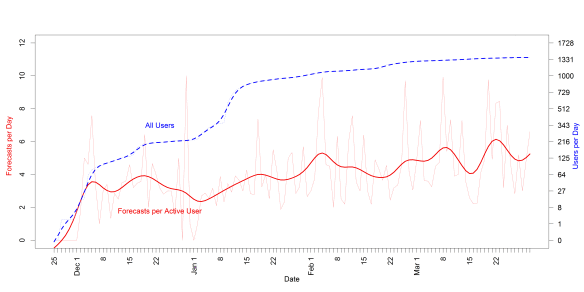Reposted with permission from SciCast forecaster Jay Kominek. You can find his blog, hypercomplex.net here.
I’m going to assume you’re familiar with SciCast; if you aren’t, that link is the place to start. Or maybe Wikipedia.
There has been a open question on SciCast, “Will Bluefin-21 locate the black box from Malaysian Airlines flight MH-370?”, since mid-April. (If you don’t know what MH370 is, I envy you.) It dropped fairly quickly to predicting that there was a 10% chance of Bluefin-21 locating MH370. Early on, that was reasonable enough. There was evidence pings from the black box had been detected in the region, so the entire Indian Ocean had been narrowed down to a relatively small area.
Unfortunately weeks passed and on May 29th Bluefin-21’s mission was completed, unsuccessfully. Bluefin-21 then stopped looking. At this point, I (and others) expected the forecast to plummet. But folks kept pushing it back up. In fact I count about 5 or 6 distinct individuals who moved the probability up after completion of the mission. There are perfectly good reasons related to the nature of the prediction market for some of those adjustments.
I’m interested in the bad reasons.

